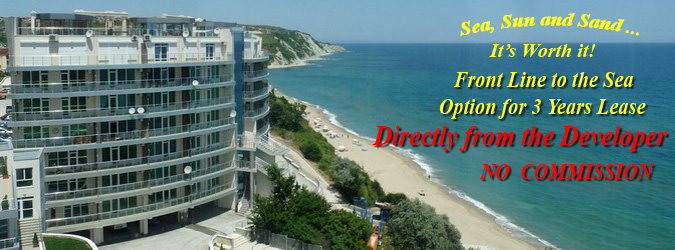Tax system in Bulgaria
The Bulgarian tax system is based on “Declaration” principle. The companies and persons declare facts for their economical activity in the terms specified by the law. They also calculate the owed taxes, and transfer the amounts. The National Revenue Agency has the right to check at any time if the factual activity match the declaration submitted. The different laws require different type of declaration in different dead line. According to their activities and their legal status the companies are obliged to pay different kind of taxes. The main activities according to the law are the following:
-
Small enterprise business. In the Law for Personal Income Taxation are defined some activities that the authorities accept that can be done by single person (can be also with employees). Such are trade with food or non food goods, photography, hair stilling, producing of souvenirs, jewelry, transport services, and etc. These companies pay fixed tax per year not depending on their turnover. That system is in use for companies with less than 50,000 levs incomes for the last 12 calendar months. These companies do not pay VAT and corporative tax. If these companies have more that 50,000 levs turnover for the last 12 months, they are obliged to register for VAT. After the VAT registration the companies are obliged with VAT tax, Taxes according to the Corporative law and they start paying taxes according to their turnover and profit.
-
Medium and big enterprise business. All companies having business activities not mentioned in the Law for Personal Income Taxation are obliged to follow the Corporative Law. If their turnover is less than 50,000 levs they are not under VAT Law and they owe the taxes from the Corporative Law (Corporative tax, dividend tax, social expense tax, representative tax).
VAT LAW
All companies that have 50,000 levs income and/or more for the last 12 calendar months are obliged to register in 14 days following the month reaching the limit.The companies can also register voluntary without incomes. The companies under VAT Law are:
-
Local companies registered in Bulgaria
-
Foreign companies operating in Bulgaria
-
Branch of foreign companies operating in Bulgaria
-
Offshore companies
-
Any other kind of company organization (local or foreign) operating in Bulgaria
In general under this law are all companies that have income received for activity done on the territory of Bulgaria, no matter of their nationality or legal statute.
The principle of the VAT tax is that the state is taxing the Added Value of Goods or services.
Once registered for VAT companies are obliged to add 20% VAT on the selling price. Companies also have the right to deduct the VAT paid to the suppliers (only if the suppliers are registered for VAT). The difference between VAT paid and VAT received is owed to the state.
The percentage of VAT is 20%. For the tourism business is 7%.
The deals under VAT law are all kind of services done on the territory of Bulgaria except:
-
Deals with agriculture land. The “right of build” is considered as part the land properties, so is VAT free;
-
Export. To avoid dual VAT taxation the companies exporters do not put VAT on the export price. They have the right to refund the VAT paid for goods that will be exported even is they do not charge VAT on top;
-
Re-export. Goods that stay temporary on the territory of Bulgaria are not considered as object of VAT law;
-
Financial and insurance services. Deals on stock market;
-
International transport.
The international transport, shipping or any deals that can not be defined to be done in Bulgaria are free of VAT.
Registration for VAT:
After having the registration the companies are obliged:
-
To submit monthly report (up to 14th of next month) with lists of the deals done – sales and expenses done. To declare the owed (or due to be refunded) tax.
-
Submitting annual reports 15th of April for the VAT paid and received in the previous year
The companies already registered have the right within 3 days after registration to submit request for refunding of VAT paid for tangible assets and services received before the VAT registration.
Deregistration for VAT:
-
If within the last 12 months the turnover is less than 50,000 levs the companies may deregister for VAT.
-
If there is a court decision for closing the company.
The companies have to pay back the VAT refunded from the state for tangible assets.
CORPORATIVE LAW
The companies not mentioned in the Law for Personal Income Taxation as obliged to pay fixed tax are under the regulation of the Corporative Law. These are all companies operating in Bulgaria – local, foreign, offshore, branches of foreign companies.
The tax rate is 10% on base of the net profit. It is calculated annually for the period between 1st of January to 31st of December. The companies are due to pay advance payment based on the profit declared for the previous year.
All companies registered in Bulgaria are obliged to submit annual declaration with annual balance sheet till 31st of March for the previous year, no matter if they have activity or no.
Other taxes in the Corporative Law:
In some cases companies should pay taxes for expenses done. For such expenses is considered the ones not related with the basic activity of the company and/or used for personal needs of shareholders, managers, employees. The tax rates is 10% for expenses for representative events; celebrations; social expenses – as food, clothes, transport for the employees and managers; car expenses if the car is not used in basic activity of the company
5% dividend tax. Sharing dividend the company should deduct percentage from the amounts and transfer to the state.
10% interest tax. Company paying interest to the individuals is due to deduct and transfer percentage to the state.
Amortizations:
The assets purchased by the companies are not considered as expense at the moment of the deal. They transfer their value in expenses monthly according to the percentage in the corporative law. The annual rates are:
-
4% buildings
-
30% machineries, equipment
-
10% transport vehicles (excluding light vehicles)
-
50% computers and software\
-
25% light vehicles
-
15% all other assets
The bases for calculating the value of the assets are:
“Historical” price – expenses done to create the asset;
“Acquisition” price – price paid by document;
“Fear” price – evaluation done by court expert, if the asset is received by donation or other free way.
Corporative tax incentives
Reduction of the corporate income tax:
The corporate tax may be reduced:
-
By 10% of certain acquired fixed assets (applicable for companies operating within regions of high unemployment);
-
With the mandatory social security contributions paid by the employer with regard to the hired new employees within regions of high unemployment;
-
By 60% - applicable for agricultural production entities;
-
By 50% - applicable for social security and health insurance funds established by law, state schools and universities;
-
By 20% - applicable for private schools and universities;
Full granting back of the corporate income tax:
The corporate income tax due is fully granted back for investments and production activities in high unemployment regions.
LAW FOR PERSONAL INCOME TAXATION
Under the regulation of this law are individuals – resident or non-resident, local or foreign citizens. The following incomes are not under the regulation by this law:
-
Dividends received from shares or as shareholders;
-
Interest received from bank deposits and loans given to companies;
-
Profit of selling 1 property no matter of the moment of acquisition;
-
Profit of selling 2 properties (lands or buildings) if the they were owned for more than 5 years;
-
Profit of selling transport machines (cars, busses, air planes, yachts) if they were bought more that 1 year before the sale;
-
Pensions and all other state social payments;
-
Profit of trade with shares;
-
Incomes from business trips;
-
Incomes from agriculture activity, also renting agriculture land
All the rest incomes are under this law. The tax rate is flat – 10%
The individuals are obliged to submit annual declaration till 30th of April for the incomes received in the previous year. The declaration is not necessary if the person has no incomes, or has only incomes from labor contracts, or has incomes stated as free of taxation.
MUNICIPAL TAXES
Object of the municipality taxation are the companies and individuals that have properties, are trading with properties, or other activities related with properties situated at the region of the municipalities. For the purposes of the municipal taxation each property has evaluation (called “tax evaluation”) based on which the taxes are defined. The evaluation is done by the rules of each municipality and is not related with the market price of the property. Such taxes are:
-
“Garbage” tax – flat rate of between 0.03% and 0.10 % of the “tax evaluation”. Paid annually.
-
“Property tax” – flat rate of between 0.02% and 0.05% of the “tax evaluation”. Paid annually.
-
“State tax” – flat rate of 2% of the tax evaluation. Paid in case of acquiring property. Paid at the notary. From 1st of January 2008 each municipality is defining its own percentage.
-
Fees – municipalities charge issuing variety of documents. Such as: building permit, permission of use, other building certificates, documents related with properties – “tax evaluations”, certificates for ownership etc.













